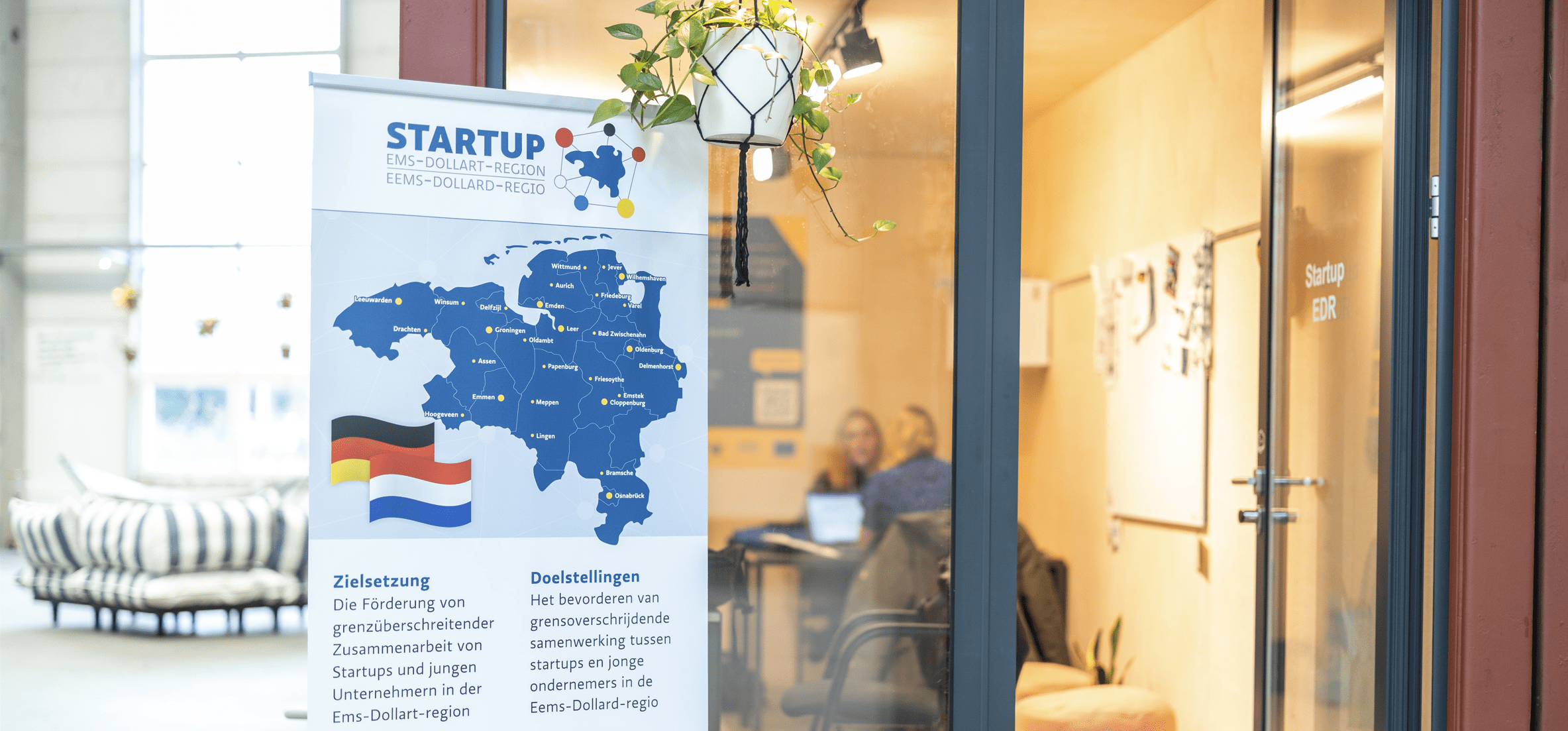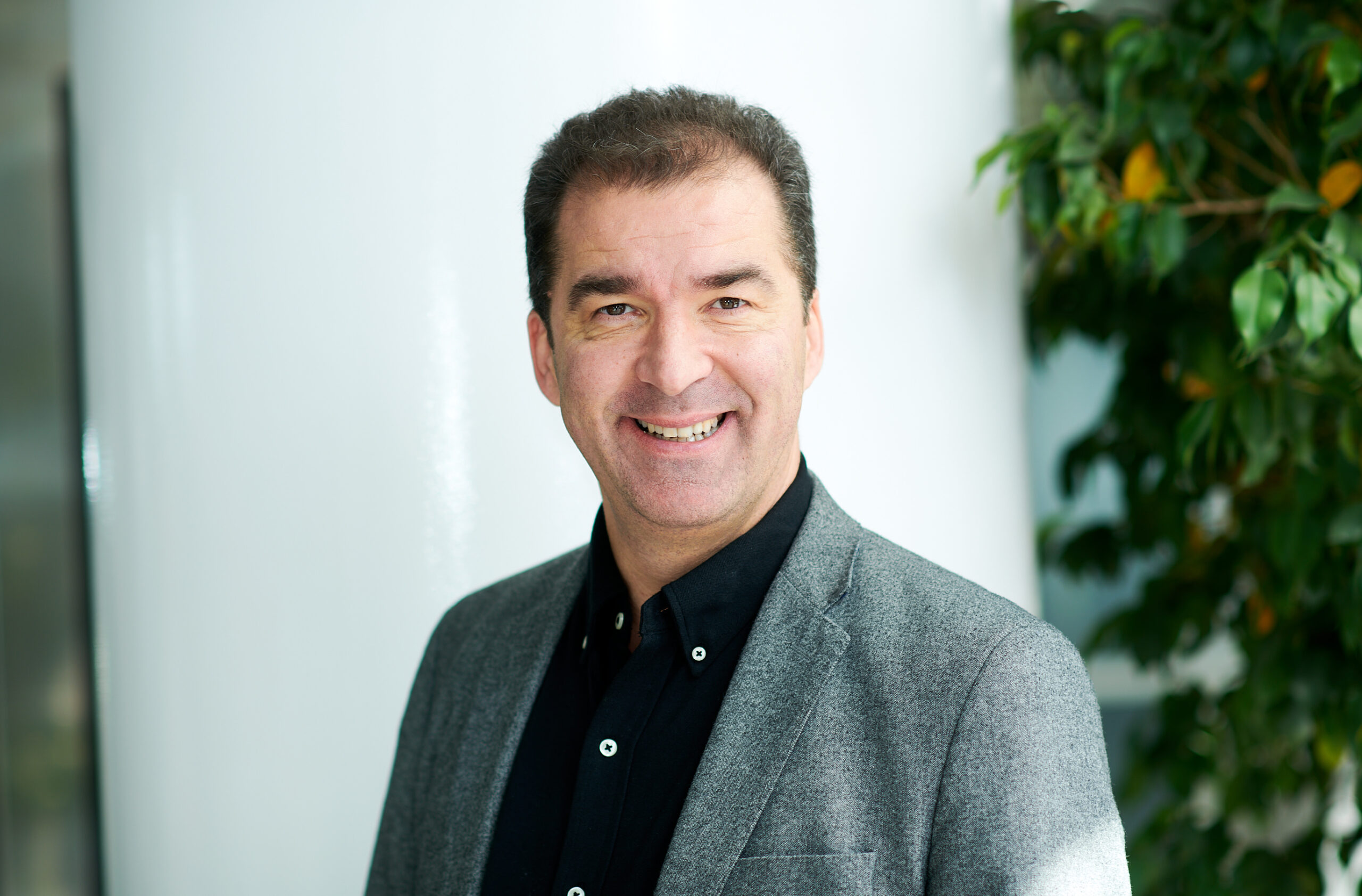Startup-EDR project expanding faster than expected: 'The Grass really is greener in this region'
It is Diederich Bakker’s dream for the Ems-Dollart-region (EDR) to become the leading connection hub for start-ups. Diederich: ‘I hope that the EDR will become a well-known name for start-ups and companies alike. A place where students want to stay after they graduate. The place that makes them realise that the grass is not always greener on the other side. Because I can tell you: the grass here is very green indeed.’

Understand and cosmopolitan
As a professor of International Business, Diederich has seen enough of the world to know what he is talking about. ‘I’ve been to Australia, have lived in the United States and have studied in France… And yet I keep returning to the EDR. The region is rather like me: sensible, with both feet on the ground. Nature here is beautiful and always close at hand. At the same time, I am surprised at how cosmopolitan cities such as Groningen, Leeuwarden and Oldenburg are. The regional economy also has a lot to offer: large ports, hidden talents and a vibrant start-up world. It’s a great place to live and work – you get to know your way around quickly. It’s not very expensive to live here either, especially compared to the Randstad and large German cities such as Berlin.”

Diederich gets particularly fired up about the area’s entrepreneurial spirit. To promote the region, he is working on setting up an ecosystem within the Startup EDR project.Diederich: ‘A network in which entrepreneurs, start-ups, companies, investors, grant providers and coaches are brought together to promote Dutch-German cross-border entrepreneurship. For everyone from Ems to Dollart: Groningen, Friesland, Drenthe, East Frisia, Oldenburg Land and Emsland.’
Surprising developments
Since the launch of Startup EDR, the coronavirus has had a major impact on the course of the project. ‘The project was still new, and we had hardly carried out any physical activities before the coronavirus came along and messed everything up. So the entire project has pretty much been online from the outset. We don’t even know how the project would workout in an analogue, offline setting. This development may actually have accelerated the project.’
‘I was rather uncertain about the future of the project.’ – Diederich Bakker
According to Diederich, this indicates the resilience of the Startup EDR project. ‘To be honest, I was quite uncertain about the future of the project myself. With these types of international projects, you are naturally already faced with obstacles such as language, different systems, insurance and physical borders. This is already quite a challenge in itself, and then we also had the coronavirus to deal with. But the opposite turned out to be true; in fact, it made it much easier to switch to a digital landscape. We organised webinars for many more people than we otherwise would have been able to reach. That’s the great thing about young entrepreneurship.’
A hybrid future
And so it was that the ecosystem came to life, fast forward. ‘In retrospect, I can say that the adaptability of our team – from permanent employees to trainees – really helped. In fact, we are now performing beyond the KPIs we initially specified. Like a start-up, we ourselves are in the phase in which we have planted the seed. This seed is now beginning to germinate into a small plant – it’s not a tree yet. Next, we need to focus on our growth, so that the project can put down deep roots in this region.’
The future of entrepreneurship is hybrid, using both analogue and digital methods.’ – Diederich Bakker
How will the Startup EDR project achieve this? ‘We embrace two worlds: analogue and digital. We will keep up this hybrid way of working. The project is starting to gain more and more recognition in the major cities in the region. Now it’s time to expand this effect to the smaller cities. This will also allow entrepreneurs in the town of Oude Pekela, for example, to benefit from the ecosystem and thus have access to the knowledge, support and network of the region.’
Learning support and AI
Although the project is developing well, there is still a lot of work to be done. ‘It could be organised more effectively. There are plenty of stand-alone initiatives in this region that we would like to link to the ecosystem. This will not only increase international connections, but also those at the interregional level. Our partners also contribute a great deal of digital know-how, which we want to share with entrepreneurs. We want to increase interregional involvement by means of digital technology, such as a platform for learning support and AI. In doing so, we are also involving current entrepreneurs in the digitalisation and optimisation of their activities. And in turn, the network will benefit from this as well.’






